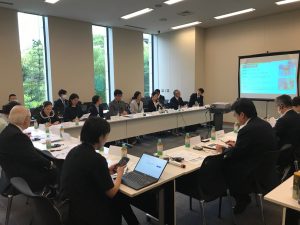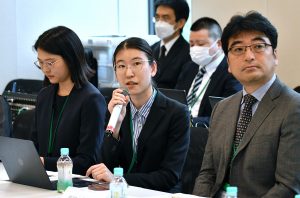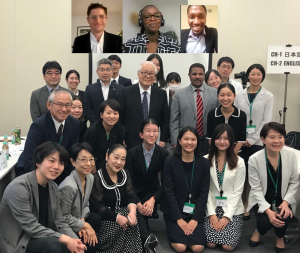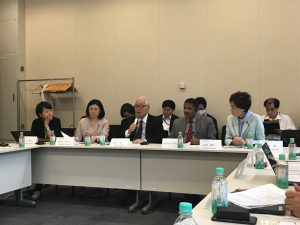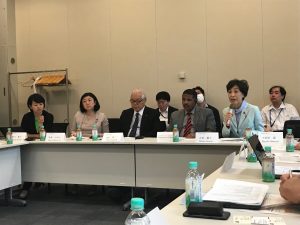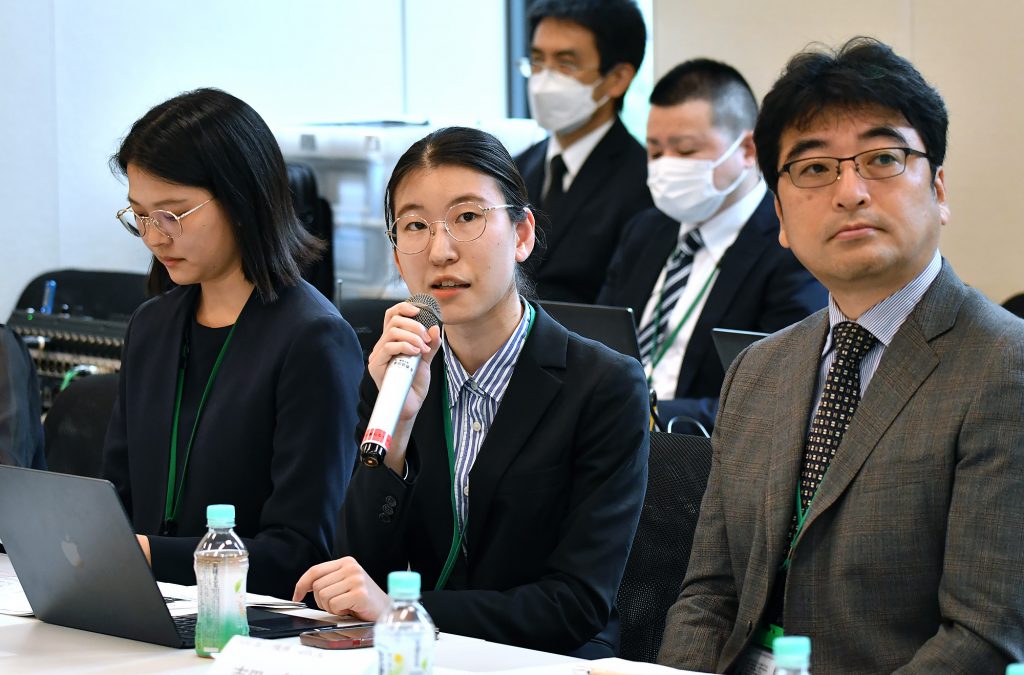The Japan Center for International Exchange (JCIE) and Save the Children Japan co-hosted an event to discuss the role of the Global Finance Facility for Women, Children, and Adolescents (GFF) in improving reproductive health, maternal, child, and adolescent health and nutrition (RMNCAH-N) toward the goal of achieving Universal Health Coverage (UHC) in low- and middle-income countries, titled “For the Health of All Women and Children: What is the Role of the GFF?” The event was attended by over 40 participants, including the Minister Plenipotentiary of Ethiopia; members of the Diet; representatives of relevant ministries, foundations, and NGOs; and youths interested in global health. In cooperation with PoliPoli Inc., the event also communicated the importance of working with youth interested in global health to address maternal, child, and adolescent health and nutrition. This event is part of JCIE’s program on Building Understanding of and Support for the Global Financing Facility.
AGENDA
Opening Remarks
ISAO KANO, President and CEO, JCIE/Japan
Role of GFF in Achieving UHC / GFF Strategy 2021-2025
BRUNO RIVALAN, Deputy Executive Director, Global Health Advocates, GFF
Added Value of GFF
YUKA SHIMAMURA, Global Advocacy Officer, Save the Children Japan
TOMOKO SUZUKI, Chief Program Officer, JCIE/Japan
TOMOYA YOSHIDA, Senior Deputy Director General and Group Director for Health Group 2, Human Development Department, Japan International Cooperation Agency (JICA)
Youth Engagement by GFF
MATY DIA, CSO Engagement Specialist, GFF
ARAFAT KABUGO, GFF Global Youth Representative; Program Manager, Naguru Youth Health Network
Messages from Japanese Youth
MAIKA MIYOSHI, 6th Year Medical Student, Faculty of Medicine, the University of Tokyo; Representative, Famileaf Corporation
Comment by Minister Plenipotentiary of the Embassy of Ethiopia
YOHANNES FANTA WOLDEFIORGIS, Minister Plenipotentiary of the Embassy of Ethiopia
Comments by Members of the Diet
Closing Remarks
The Global Financing Facility for Women, Children and Adolescents (GFF) is an international financing institution established within the World Bank to improve reproductive health, maternal, child, and adolescent health and nutrition (RMNCAH-N). Since its establishment in 2015, the GFF has supported the development and implementation of country-led national health plans. In particular, the GFF focuses on promoting collaboration among governments, development partners, civil society, and the private sector to achieve national health plans through multi-stakeholder platforms in each country. The GFF is unique in that, in addition to providing new World Bank funds to implementing countries on a results basis, it also acts as a catalyst for the effective mobilization of existing funds to the health sector.
The purpose of this event was to promote participants’ understanding of how the GFF can contribute to improving the health of all women and children and achieving Universal Health Coverage (UHC), especially in low- and middle-income countries that have seen regression in maternal and child health improvements due to the impact of COVID-19.
The event was opened with an address by Isao Kano, President of JCIE/Japan. Bruno Rivalan, the GFF’s Deputy Executive Director of Global Health Advocates, then gave an overview of the GFF’s role in achieving UHC and its strategy for 2021–2025.
Mr. Rivalan noted that the GFF has been working to improve access to family planning and vaccines, strengthen health systems including human capital and supply chains, as well as mobilize additional funding. He also noted that the GFF’s strategy through 2025 includes supporting donor leadership, addressing gender, geographic, and economic imbalances, ensuring robust essential health services even during health crises, pushing for financial reforms, and creating appropriate data and systems for decision-making.
Case study reports on the GFF’s impact on universal health coverage in Ethiopia were then presented by Yuka Shimamura from Save the Children Japan. Tomoko Suzuki from JCIE then presented a country case study report on the GFF’s role in supporting PHC toward achieving UHC in Vietnam, Tajikistan, and Côte d’Ivoire.
JICA’s Tomoya Yoshida discussed the past relationship between JICA and the GFF, as well as their future prospects. JICA has been actively coordinating and collaborating with the GFF at both the field and global levels as a member of the GFF Investors Group. He highlighted JICA’s efforts to support the implementation of national health strategies in Kenya and other countries. JICA provides technical assistance in formulating these strategies and offers development policy loans to promote UHC. Yoshida also expressed JICA’s interest in working together with the GFF through parallel financing and technical cooperation in the areas of maternal and child health and primary healthcare at the field level.
GFF’s Maty Dia, also emphasized the importance of the GFF’s partnership with civil society and youth. She explained that since its inception, the GFF has placed partnership-building with civil society and youth at the core of its strategy, supporting youth groups and civil society in policy advocacy and monitoring the efforts of GFF and its partners. The participants expressed their expectations for further progress in the future.
Youth representatives Arafat Kabugo and Maika Miyoshi presented messages on the importance of the GFF’s role in strengthening youth voices and youth-led initiatives, as well as the significance of the GFF in coordinating among stakeholders and mobilizing funds. Both expressed the hope that the Japanese government will increase its contribution to these activities, strengthen collaboration, and create more career development opportunities for youth.
The event concluded with the Minister Plenipotentiary of the Embassy of Ethiopia in Japan expressing gratitude to global donors for external funding and reaffirming the need for continued financial resources to address maternal, child, and adolescent health.
